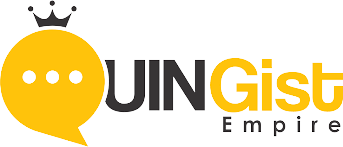Self-Reflection and Authentic Feedback, Your Path to Personal Growth

Self-Reflection and Authentic Feedback, Your Path to Personal Growth
In our journey through life, seeking feedback and engaging in self-reflection are crucial steps toward personal and professional growth. However, not all feedback is created equal. Often, we encounter “eye service”—superficial praise or critique given with the intention of currying favor rather than providing genuine insight. To truly understand ourselves and improve, we must seek and consider the perspectives of those who offer sincere, unvarnished feedback. This article delves into the value of authentic feedback, the importance of self-reflection, and the impact of these practices on personal development.
What Do People Who Are Not Doing Eye Service Have to Say About You?
People who provide honest feedback—those not engaged in eye service—can offer invaluable insights into your behavior, skills, and areas for improvement. These individuals, who often include close friends, mentors, or colleagues who value integrity over flattery, observe your actions and decisions without the filter of personal gain. Their perspectives can reveal:
- Strengths You Overlook: Authentic feedback often highlights positive attributes you might take for granted. Understanding these strengths can boost your confidence and guide you to leverage them more effectively in your personal and professional life.
- Areas for Improvement: Genuine feedback also brings to light areas where you may be falling short. This information, though sometimes difficult to hear, is essential for growth. Constructive criticism helps you identify specific behaviors or skills that need development.
- Blind Spots: We all have blind spots—areas of our personality or behavior we are unaware of. Honest feedback can uncover these, allowing you to address issues you didn’t know existed
Have You Asked Yourself Those Questions?

Regularly questioning yourself is a powerful tool for self-awareness and growth. Reflecting on feedback and your actions can lead to profound insights. Here are some key questions to consider:
- What Are My True Strengths and Weaknesses?: Reflecting on your abilities and shortcomings helps you to understand where you excel and where you need improvement. This self-awareness is the foundation of personal development.
- How Do My Actions Affect Others?: Considering how your behavior impacts those around you can improve your interpersonal relationships. It encourages empathy and helps you to adjust your actions to foster a more positive environment.
- What Are My Core Values and Goals?: Understanding your values and aligning your actions with your goals ensures you are on a path that is true to yourself. This alignment is crucial for long-term satisfaction and success.
What Am I Not Doing Right?
Identifying what you are not doing right requires both introspection and external feedback. Here’s a structured approach to uncovering and addressing your shortcomings:
- Solicit Honest Feedback: Seek feedback from trusted individuals who are known for their honesty. Ask them specific questions about your performance, behavior, and areas for improvement.
- Reflect on Feedback and Actions: Take the time to thoughtfully consider the feedback you receive. Reflect on your actions and behaviors to identify patterns or recurring issues.
- Set Clear, Achievable Goals: Based on the feedback and your reflections, set specific goals for improvement. Break these goals down into manageable steps to make progress more attainable.
- Develop an Action Plan: Create a plan to address the areas needing improvement. This might involve seeking additional training, altering your approach to certain situations, or changing specific behaviors.
- Monitor Progress and Adjust: Regularly review your progress towards your goals. Adjust your action plan as needed based on your ongoing experiences and feedback.

Engaging in self-reflection and seeking authentic feedback are powerful practices for personal growth. By understanding what genuine, non-eye-service feedback says about you, questioning your own actions and behaviors, and identifying areas for improvement, you can embark on a journey of continuous development. This process not only enhances your skills and behaviors but also enriches your relationships and aligns your actions with your core values and goals. In the end, the quest for self-improvement is a lifelong journey, and the insights gained from sincere feedback and introspection are invaluable companions along the way.



